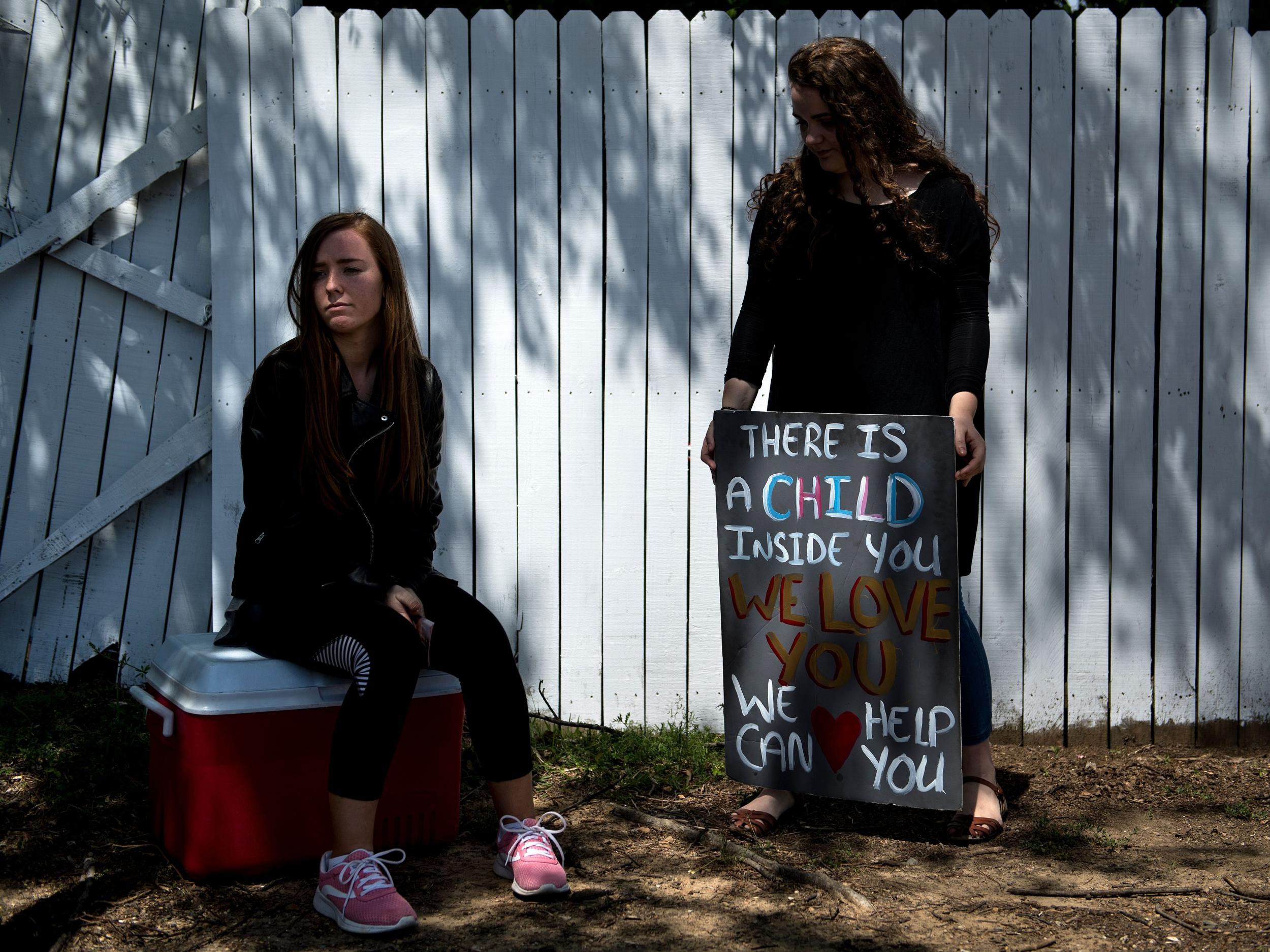Mississippi judge blocks law banning abortions after 15 weeks
Court follows 'dictates of the US Constitution' - not 'disingenuous calculations of the Mississippi Legislature', Judge Carlton W Reeves rules

Your support helps us to tell the story
From reproductive rights to climate change to Big Tech, The Independent is on the ground when the story is developing. Whether it's investigating the financials of Elon Musk's pro-Trump PAC or producing our latest documentary, 'The A Word', which shines a light on the American women fighting for reproductive rights, we know how important it is to parse out the facts from the messaging.
At such a critical moment in US history, we need reporters on the ground. Your donation allows us to keep sending journalists to speak to both sides of the story.
The Independent is trusted by Americans across the entire political spectrum. And unlike many other quality news outlets, we choose not to lock Americans out of our reporting and analysis with paywalls. We believe quality journalism should be available to everyone, paid for by those who can afford it.
Your support makes all the difference.A federal judge has blocked a Mississippi law that sought to forbid most abortions after 15 weeks of pregnancy.
Judge Carlton W Reeves of US District Court in Jackson, the Mississippi capital, ruled that it “disregards” the 14th Amendment’s promise of due process and defied the US Supreme Court’s existing precedents on abortion rights.
He said: “The state chose to pass a law it knew was unconstitutional to endorse a decades-long campaign, fuelled by national interest groups, to ask the Supreme Court to overturn Roe v. Wade. This court follows the commands of the Supreme Court and the dictates of the United States Constitution, rather than the disingenuous calculations of the Mississippi Legislature.”
He added, in a footnote, that the Legislature’s “professed interest in ‘women’s health’ is pure gaslighting” and that Mississippi officials challenge abortion rights but “choose not to lift a finger to address the tragedies lurking on the other side of the delivery room: our alarming infant and maternal mortality rates.”
Judge Reeves, who cited evidence that viability begins at between 23 and 24 weeks, issued his decision about eight months after the Republican-dominated Mississippi state government enacted the law, which banned abortions if “the probable gestational age of the unborn human” was determined to be more than 15 weeks. The statute included narrow exceptions for medical emergencies or “a severe fetal abnormality.”
The law drew a same-day court challenge by the Jackson Women’s Health Organisation, the state’s only provider of abortion services, and Judge Reeves responded almost as quickly with an order that barred the law from being enforced. It was not earlier this week that he issued a permanent injunction and described the law as “a facially unconstitutional ban on abortions prior to viability.”
But the justice, who was appointed to the bench by President Barack Obama, said the law may have been the foundation of a “deliberate effort” by Mississippi politicians to overturn Roe v Wade, which recognised a nationwide right to an abortion.
“With the recent changes in the membership of the Supreme Court, it may be that the state believes divine providence covered the Capitol when it passed this legislation,” Judge Reeves wrote. “Time will tell. If overturning Roe is the state’s desired result, the state will have to seek that relief from a higher court. For now, the United States Supreme Court has spoken.”
The US Court of Appeals for the fifth Circuit, among the nation’s most conservative appellate benches, would consider an appeal by the state. The Mississippi attorney general’s office did not respond to a message, and Governor Phil Bryant, who was travelling abroad on Tuesday, did not immediately comment. But Bryant, who last week described the abortion rate of African-Americans as “genocide,” championed the now-blocked law when he signed it in March, declaring, “We are saving more of the unborn than any state in America, and what better thing could we do?”
Critics of the law regarded Reeves’ decision as a warning to other states that might consider similar legislation.
“Today’s decision should be a wake-up call for state lawmakers who are continuously trying to chip away at abortion access,” said Nancy Northup, the president and chief executive of the Center for Reproductive Rights, which was involved in the Mississippi litigation. “Such bans will not stand in a court of law.”
The New York Times
Join our commenting forum
Join thought-provoking conversations, follow other Independent readers and see their replies
Comments